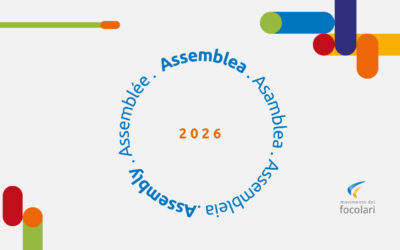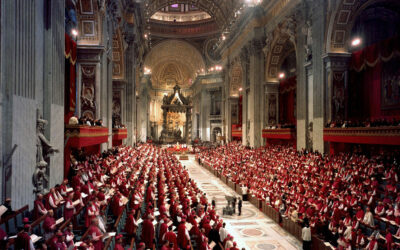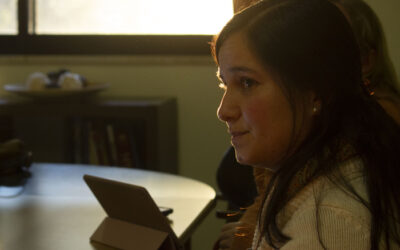An empty tomb, a light that illuminates the world and in its trail, we can build bridges of true unity. Heike Vesper, Enno Dijkema and Mervat Kelli, focolarini from different Christian Churches, tell us about Easter. “Easter is the centre of the Christian faith, it is the mystery of Salvation. Without Easter there is no Christianity. Jesus became incarnate to save us. All Christians believe in the same Jesus Christ who died and rose again.” These are the words that Mervat Kelli, an Orthodox focolarina from Syria, used to indicate to us the fertile ground where nothing ends but everything begins; the tangible space where we can meet, share and be enveloped by the light of the Resurrection. This is the ecumenical meaning of Easter, the inheritance that Christ leaves us. “It’s a time to adore him,” says Enno Dijkema, a Catholic focolarino from Holland. “Jesus,” he continues, “loves us to the point of abandonment to the Father, even unto death. He gives everything! I can safely entrust to him all my miseries, my limitations and everyone’s suffering. There is no darkness that is not overcome by the light of his love.” Heike Vesper, a German focolarina from the Lutheran Church, says that Easter means that Jesus Forsaken “has healed our relationship with the Father. In his cry, in his ‘why’” she says, “I find all my ‘whys’ and my anxieties.” Every resurrection is preceded by a period of waiting, the time to wait as Mary did, under the cross, without knowing what to do. There is the silence and the darkness of Holy Saturday before the dawn of Sunday arrives with the fire, the liturgy of light and the renewal of baptism”. Easter is a time of great communion with one’s brothers and sisters, rooted in an attitude of forgiveness. As Mervat says, “In the Syrian Orthodox Church to which I belong, Easter is called ‘the great feast’. The preparation begins at the beginning of Lent with the consecration of the oil of reconciliation. At the end of the liturgy, each member of the faithful dips a piece of cotton wool in the consecrated oil and goes towards, one by one, to ask for their forgiveness – bringing his or her own and receiving theirs in turn. They draw a small cross on their foreheads and say: ‘I forgive you with all my heart, let this oil be the sign of my forgiveness. I ask you to forgive me.'” The various traditions and the different forms of liturgy represent a great richness, and being able to live them together, as often happens in the Focolare Movement, highlights “the immensity of God Love” as Heike says. She continues, “For some time now, I’ve been living in a community with Catholics, and it is precisely these liturgies that we try to live together if the timetable of the celebrations allows it. So, almost every year on Good Friday we go together first to the Lutheran church and then to the Catholic church. The same thing at Easter.” “For me this is the first Easter in Italy,” says Enno, “but in Holland I have been able to attend the Good Friday service with the Protestant member of my focolare. It was good to do that.” Mervat, who according to the Julian calendar is preparing to celebrate the Orthodox Easter on 24th April this year, has been in Italy for some years now and has the joy of participating in all the services of the Catholic Church with other focolarine. She feels this is a wonderful opportunity: “We still have different dates, but we have the same faith, the same hope, the same Love of God the Father, the Son and the Holy Spirit. We all have the same commandment: love one another as I have loved you. This is the key that opens the door to unity.”
Maria Grazia Berretta




0 Comments